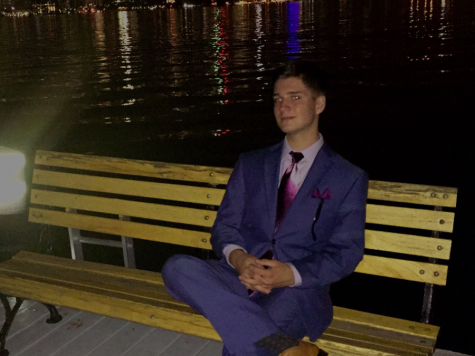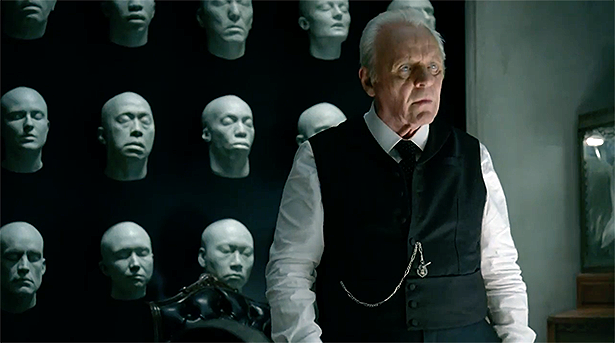Explore your violent delights with Westworld
HBO’s Westworld blurs the line between a riveting, grisly Western and an exposition on the human condition
HBO’s Westworld is an adaptation of a 1973 action film involving a theme park designed for modern day humans to ‘experience’ the Wild West. This variation of the plot was simpler, with lighter tones and a smaller amount of underlying themes.
The show begins to rely on our familiarity with the Western genre, utilizing cliches such as Western dialect (them there varmints, them banditos, etc.), as well as various cliche action roles such as the mysterious, deadly Man in Black, the criminal Mexican Bandit, prostitutes who retaliate, the damsel in distress, the naive and sweethearted newcomer, and many more.
The show manages to apply these cliches even to the human ‘guests’, while simultaneously avoiding a corny dialogue or story and incorporating clever, intellectual writing.
The glory of the show doesn’t completely rest in the Western setting. The modern-day setting, which generally takes place in the facility where Westworld develops its AI, or ‘hosts’, displays the darker, more psychological aspect of the show. For example, we are exposed to one AI character awakening from their “sleep mode” after they die in Westworld, only to have flashbacks of her and her daughter being brutally murdered by a stone cold guest.
Anthony Hopkins, famous for his role as Hannibal Lecter in The Silence of the Lambs, reprises his role of a brooding and manipulative figure as Dr. Robert Ford, hellbent on crowning himself a God in his own world.
If anything, audiences should watch Westworld simply for Hopkins’ beautiful acting and his perfect execution of the megalomaniac. Hopkins effortlessly intimidates a boardmember under him from proceeding to enact checks and balances by displaying his sheer power over the hosts, freezing them still in order to gain the upper hand in the exchange.
Today’s Westworld is a longshot from the slapstick Western action film directed by Michael Crichton. The film explores various themes, from the loss of morality to the question of whether artificial intelligence can truly become sentient and live among humanity.
While the question had certainly been explored in film and television before; I, Robot, Bicentennial Man, Tron, Transcendence, Ex Machina, and so on. The approaching relevance of the question of AI in society has even reached superhero films, such as Marvel’s Avengers: Age of Ultron.
The world needed a cinematic exposition on the Human Condition (defining factors of humanity such as birth, growth, death, reason for existence, etc.) and the question of the morality and logic behind allowing AI, specifically humanoid robots, into society.
Technology is rapidly shifting and changing. The difference of five years in modern technology is the difference of 50 prior to the turn of the 21st Century. In relative terms, society could be dealing with the prospect of artificial intelligence as soon as the 2030s.
Westworld, unlike its various counterparts which explore the ideology of artificial intelligence, also manages to explore the human psyche.
The most unique aspect of Westworld is the guests are thrown into a replica of one of the most chaotic time periods in American history; with the knowledge that they can take lives and destroy without any repercussions.
An ongoing theme in the show is how the park will ‘change’ its guests; it is often said that the exposure to such unlimited power and possibility will reveal the true characteristics of the humans on the show.
Westworld is mainly accessible to the wealthy elite; those who are tycoons or monopolists and are bored with reality; looking to act out their deepest (and often darkest) fantasies. During the dialogue, the cost of attendance is mentioned offhandedly. Each day of attendance costs $40,000.
While it is possible the number is so high as a result of inflation; it is still notable that only the wealthy elite seem to be entering Westworld.
As a result of their fragile lifestyles away from Westworld, guests can often be found senselessly and brutally murdering innocent hosts for the fun of it. Of course, the guests cannot expect to get away with such devious acts forever; AI or not.
The single most key aspect of the show is as Shakespeare said in Romeo and Juliet: “These violent delights have violent ends.”
The exact time period in which the show takes place is unknown, though it can be inferred that it is at least 30 years into the future from 2016.
The lack of immediate consequences for human guests, of course, reflects itself onto a bigger picture. The possibility of the development of sentience on the part of artificial intelligence, or the ‘hosts’ of Westworld.
Very few of the guests and park developers consider the possibility that the hosts could gain consciousness or sentience and take their revenge on the humans. This naivete is constantly capitalized on by the hosts as the show progresses, influencing the teeth-grinding suspense; climax after climax.
Westworld’s exploration of the psycholoical effects of artificial intelligence on the human mind gives it an edge over various other films and television shows to follow the same route. Rather than relying on plot twists and shock factor; Westworld provides viewers with theories and possibilities to truly question. As a result, Westworld is one of the most innovating, must-see shows of this year; and possibly even this decade.

Tim Gray is a Junior and the International Editor of the A-Blast, starting out as a staff writer his sophomore year. His interests include various genres...





